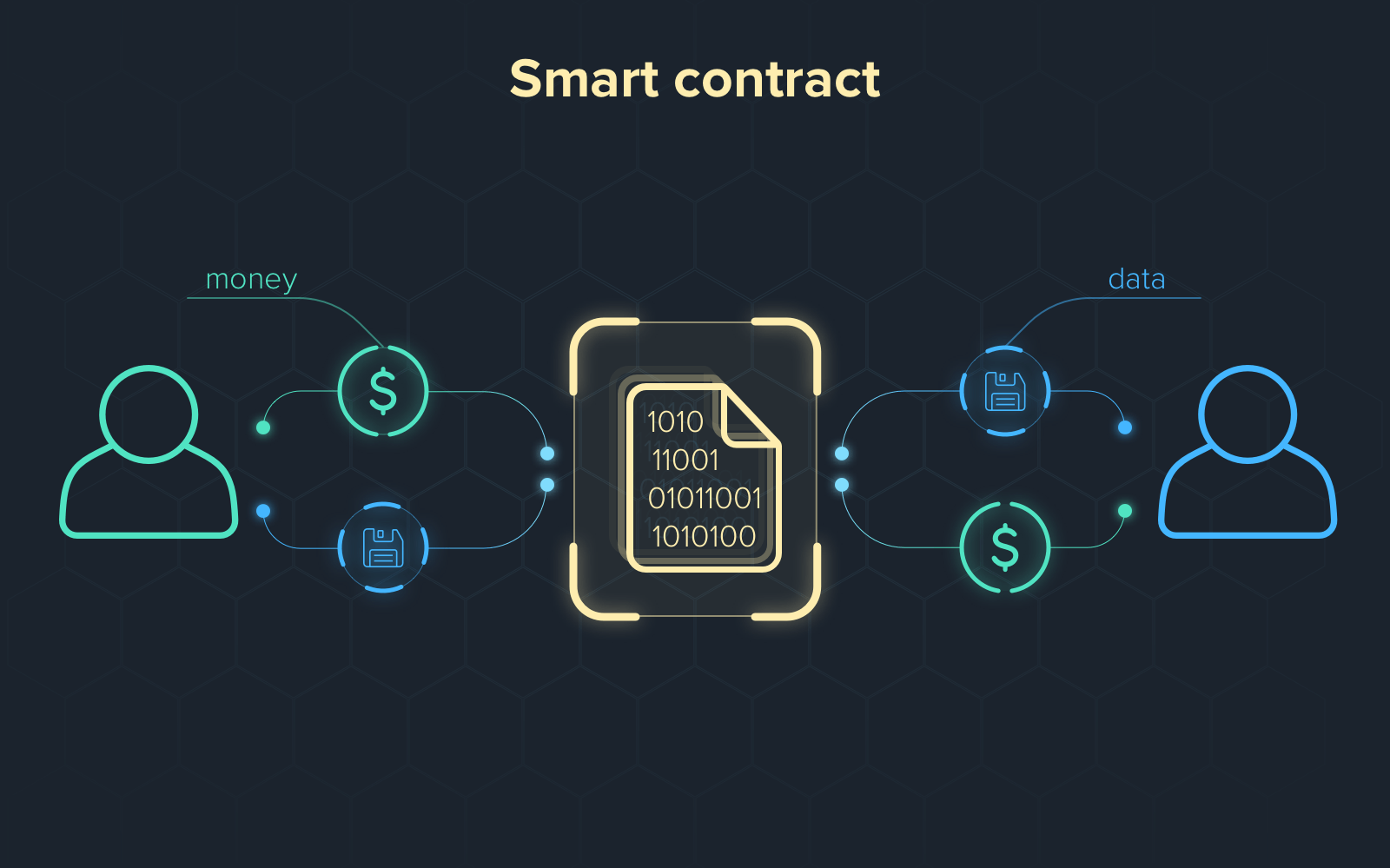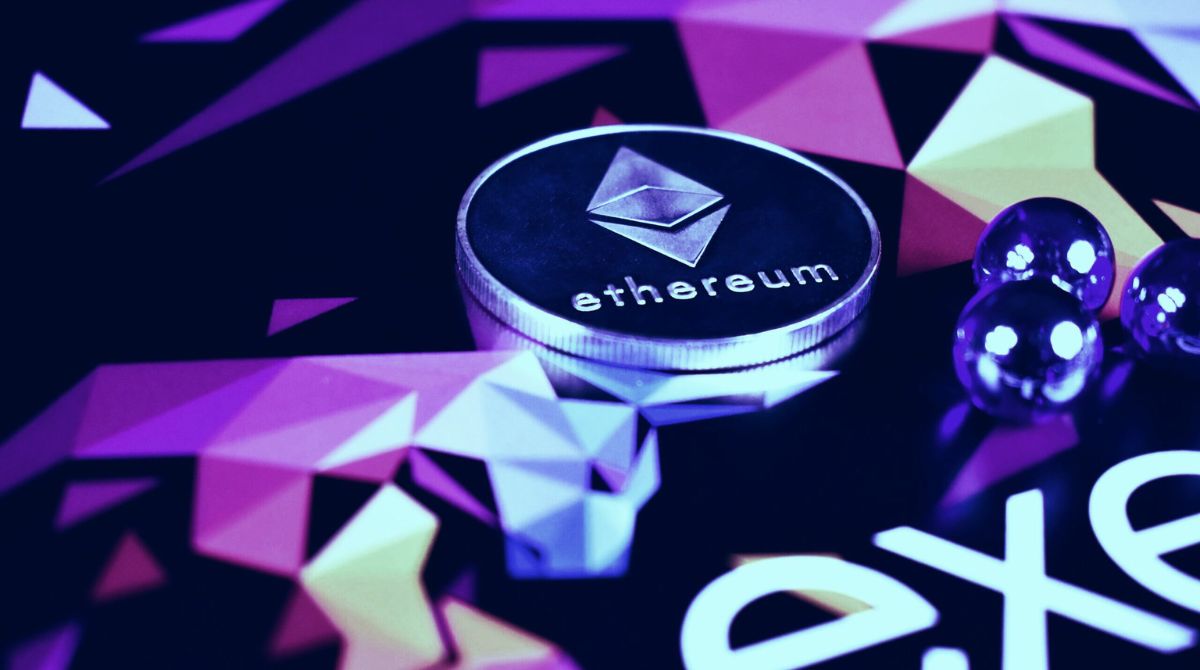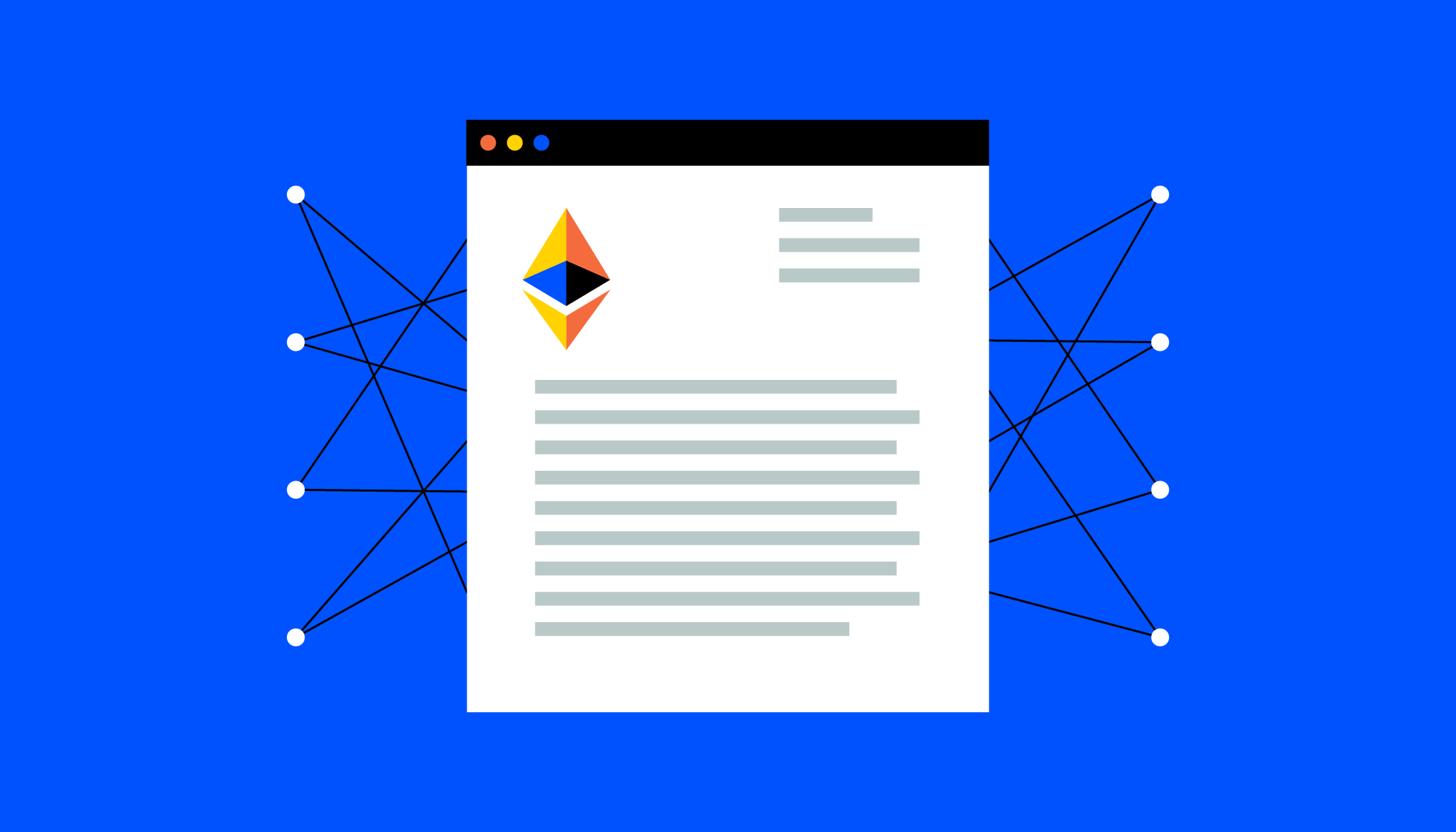What are Smart Contracts?
Smart contracts are self-executing contracts with the terms of the agreement directly written into lines of code. These contracts are stored on a decentralized blockchain network and automatically execute actions when predefined conditions are met. They eliminate the need for intermediaries, such as lawyers or banks, as the code enforces and verifies the agreement. Smart contracts bring automation, transparency, and security to various industries and have gained significant attention with the rise of blockchain technology.
Unlike traditional contracts, which require manual execution and often involve trust issues, smart contracts provide a decentralized and trustless process. Once deployed, smart contracts cannot be altered, ensuring the integrity of the agreement. The code within smart contracts can be audited and verified by anyone on the blockchain, thus enhancing transparency.
Smart contracts can facilitate a wide range of agreements, from simple financial transactions to complex multi-party interactions. They enable the transfer and management of digital assets, as well as the implementation of conditions and rules within the code. For example, a smart contract can automatically release payment to a supplier once a product is delivered, or it can distribute royalties to artists based on the number of plays their music receives.
One of the key features of smart contracts is their autonomous nature. They eliminate the need for manual intervention and ensure that transactions are executed exactly as programmed. This reduces the potential for human error and manipulation, increasing reliability and efficiency.
Moreover, smart contracts are highly secure. By utilizing blockchain technology, these contracts are distributed across multiple nodes in the network, making them resistant to hacking and tampering. The decentralized nature of the blockchain ensures that no single party has control over the contract, further enhancing security and trust.
Smart contracts have the potential to revolutionize various industries, including finance, supply chain management, real estate, and healthcare. They offer innovative solutions for streamlining processes, reducing costs, and increasing transparency. However, they also come with challenges and limitations that need to be addressed to fully realize their potential.
How do Smart Contracts work?
Smart contracts are executed on blockchain networks, typically utilizing the power of decentralized platforms like Ethereum. These platforms provide the infrastructure needed to deploy and run smart contracts. Let’s explore the key steps involved in the functioning of smart contracts:
1. Contract Creation: A smart contract is created by writing its code using a programming language compatible with the blockchain platform. The code outlines the agreement, defining the conditions, rules, and actions to be executed.
2. Contract Deployment: Once the code is written, the smart contract is deployed onto the blockchain network. This involves submitting the contract code, along with other necessary information, to the network for validation and inclusion in the blockchain.
3. Contract Activation: After deployment, the smart contract becomes active and ready to execute its predefined actions. It waits for triggers or inputs that will initiate its programmed functions.
4. Triggering Events: Smart contracts are designed to execute actions based on specific conditions or events. These triggers can be external actions, such as a transfer of funds, or internal events, such as a specific time/date reached or a particular data input received.
5. Code Execution: When a triggering event occurs, the smart contract automatically executes the coded instructions within its program. These instructions define the actions to be performed, such as transferring funds, updating data, or interacting with other smart contracts.
6. Transaction Validation: Every action performed by a smart contract is validated by the blockchain network. Validators (nodes) execute the contract’s code and verify that the transaction complies with the predefined rules. This validation process ensures the integrity and security of the smart contract.
7. Immutable Record: Once a smart contract transaction is validated, it becomes part of the immutable blockchain ledger. The transaction’s details, including the inputs, outputs, and executed code, are permanently recorded and can be audited by anyone on the network.
8. Contract Termination: Smart contracts can have predefined termination conditions, where they cease to execute actions. For example, a smart contract may end after a set duration or when specific conditions are met. Once terminated, the contract remains visible on the blockchain for historical purposes.
Through these steps, smart contracts enable automation, security, and transparency in various industries and applications. They eliminate the need for intermediaries, reduce costs, and increase efficiency. However, it is crucial to address the challenges and limitations associated with smart contracts to ensure their widespread adoption and successful implementation.
Benefits of Smart Contracts
Smart contracts offer numerous advantages over traditional contract systems, leveraging blockchain technology to revolutionize the way agreements are made and executed. Here are some key benefits of smart contracts:
1. Automation: Smart contracts eliminate the need for manual execution of agreements. Once programmed with the desired conditions, smart contracts automatically execute actions when triggered, saving time and reducing the potential for human error.
2. Efficiency: By removing intermediaries and automating processes, smart contracts streamline operations and improve efficiency. Transactions are executed instantly, eliminating delays associated with traditional paperwork and manual verification.
3. Cost Reduction: Smart contracts eliminate the need for third-party intermediaries, such as lawyers or brokers, resulting in significant cost savings. The removal of administrative overheads and the reduction of human intervention contribute to overall cost reduction.
4. Transparency: Smart contracts are stored on a decentralized blockchain network, making them transparent and auditable by anyone. All parties involved in a smart contract can access the contract’s details and track the progress of transactions, ensuring transparency and trust.
5. Security: Smart contracts utilize the inherent security features of blockchain technology. The decentralized nature of the blockchain network makes smart contracts resistant to tampering and hacking, ensuring the integrity and security of transactions.
6. Immutable Records: Smart contracts create permanent and immutable records of transactions on the blockchain. Once a transaction is executed and validated, it becomes a part of the blockchain’s history, creating a reliable and auditable trail of all activities.
7. Global Accessibility: Smart contracts operate on blockchain networks accessible to anyone with an internet connection. This global accessibility eliminates geographic limitations and opens up opportunities for secure and efficient cross-border transactions.
8. Trustworthiness: Smart contracts are based on cryptographic protocols, ensuring that terms and conditions are automatically enforced. This reduces the need to trust unknown parties, as the code itself verifies and enforces the agreement.
9. Scalability: Blockchain platforms that support smart contracts offer scalability, enabling thousands of contracts to be executed simultaneously. This scalability ensures smooth operations even during periods of high demand.
10. Innovation Potential: Smart contracts unlock new possibilities and enable innovative applications. They can facilitate the creation of decentralized applications (dApps) and enable the integration of various technologies, such as IoT devices, to create powerful and transformative solutions.
These benefits make smart contracts a compelling option for a wide range of industries seeking efficiency, security, and cost savings in their contract processes. While they offer significant advantages, it’s important to consider the challenges and limitations associated with implementing smart contracts effectively.
Use Cases for Smart Contracts
Smart contracts have the potential to revolutionize various industries by automating processes, increasing security, and enhancing efficiency. Here are some prominent use cases for smart contracts:
1. Financial Services: Smart contracts can be utilized in various financial transactions such as loans, insurance, and crowdfunding. For example, a smart contract can automatically execute loan repayments on scheduled dates, eliminating the need for manual reminders and reducing the risk of default.
2. Supply Chain Management: Smart contracts can optimize supply chain processes by automating tasks such as inventory management, order fulfillment, and payment settlements. This ensures transparency and traceability throughout the supply chain, reducing delays, fraud, and errors.
3. Real Estate: Smart contracts can streamline real estate transactions by automating tasks such as property transfers, escrow agreements, and lease agreements. This eliminates the need for intermediaries, reduces paperwork, and ensures secure and transparent transactions.
4. Healthcare: Smart contracts can enhance the management of patient records, ensuring secure sharing of medical data between healthcare providers. They can also automate insurance claims processing, reducing administrative overhead and improving the accuracy of claims settlements.
5. Intellectual Property: Smart contracts can enable artists, musicians, and content creators to protect their intellectual property rights. By automatically tracking and distributing royalties based on predefined conditions, smart contracts ensure fair compensation and reduce the potential for copyright infringement.
6. Voting Systems: Smart contracts can revolutionize the voting process by enabling secure and transparent digital voting. By leveraging blockchain’s immutability and transparency, smart contracts can ensure accurate and tamper-resistant voting results.
7. Decentralized Exchanges: Smart contracts are the backbone of decentralized exchanges (DEX), enabling users to trade digital assets directly without intermediaries. These contracts facilitate the secure and transparent execution of buy and sell orders, creating a trustless marketplace.
8. Gaming and Gambling: Smart contracts can be used to create provably fair gaming and gambling platforms. By embedding the rules of the games into smart contracts, the fairness of outcomes can be guaranteed, enhancing trust among players.
9. Identity Verification: Smart contracts can address identity management challenges by securely storing and verifying user identities. This can enable streamlined identification processes and reduce the risk of identity fraud.
10. Energy Trading: Smart contracts can enable peer-to-peer energy trading, allowing individuals and businesses to buy and sell excess energy directly. This promotes energy efficiency, reduces reliance on centralized authorities, and empowers individuals to participate in the energy market.
These use cases highlight the versatility and disruptive potential of smart contracts across industries. As blockchain technology continues to evolve, we can expect more innovative applications and adoption of smart contracts in various sectors.
Challenges and Limitations of Smart Contracts
While smart contracts offer significant benefits, they also come with challenges and limitations that need to be addressed for their widespread adoption and successful implementation. Here are some key challenges to consider:
1. Immutability: The immutability of smart contracts, a feature that ensures their integrity, can also be a limitation. Once deployed, it becomes difficult to modify or update the contract’s code, potentially leading to issues if errors or vulnerabilities are discovered.
2. Code Vulnerabilities: Smart contracts are written in programming languages, making them susceptible to coding errors. Even a small mistake or an overlooked condition can have unintended consequences, leading to financial losses or security breaches.
3. Legal and Regulatory Compliance: The legal implications of smart contracts can vary across jurisdictions. Ensuring compliance with existing laws and regulations can be challenging, especially when it comes to complex agreements or industry-specific requirements.
4. Oracles and External Data: Smart contracts rely on accurate and reliable data inputs to execute their actions. However, accessing real-world data from external sources, known as oracles, introduces potential vulnerabilities and dependency on trusted data providers.
5. Scalability: Current blockchain platforms face scalability issues, limiting the number of transactions that can be executed concurrently. This can impact the performance and efficiency of smart contracts, especially in high-demand scenarios.
6. User Experience: The current user experience of interacting with smart contracts is often complex and requires technical expertise. Simplifying the user interface and ensuring a seamless experience for both developers and end-users are essential for wider adoption.
7. Privacy: The transparency of blockchain can be a limitation when it comes to privacy-sensitive applications. Ensuring that sensitive information is securely stored and shared only with authorized parties is crucial for protecting privacy rights.
8. Governance and Dispute Resolution: The decentralized nature of blockchain networks can make it challenging to resolve disputes or make changes to the contract in case of disagreements. Establishing effective governance mechanisms and dispute resolution processes is necessary to ensure fairness and accountability.
9. Integration with Legacy Systems: Many industries still rely on legacy systems and traditional processes. Integrating smart contracts with existing infrastructure and workflows can be complex and requires careful planning and consideration.
10. Education and Awareness: Smart contracts and blockchain technology are still relatively new concepts for many people. Raising awareness, educating stakeholders, and fostering a better understanding of the technology are essential for its adoption and successful implementation.
Addressing these challenges and limitations will contribute to the maturation and wider adoption of smart contracts. As the technology evolves and innovative solutions are developed, smart contracts have the potential to revolutionize various industries and transform the way agreements are made and executed.
Smart Contract Platforms
Various blockchain platforms support the implementation and execution of smart contracts. These platforms provide the necessary infrastructure and tools to develop, deploy, and interact with smart contracts. Here are some prominent smart contract platforms:
1. Ethereum: Ethereum is one of the most well-known platforms for smart contracts. It introduced the concept of decentralized applications (dApps) and supports a Turing-complete programming language called Solidity. Ethereum’s platform is widely adopted and has a robust ecosystem of dApps and smart contracts.
2. Binance Smart Chain (BSC): Binance Smart Chain is an Ethereum-compatible blockchain platform that offers faster transaction processing and lower fees compared to Ethereum. It enables developers to deploy smart contracts using Solidity, making it an attractive alternative for decentralized applications.
3. Cardano: Cardano is a blockchain platform that emphasizes security and scalability. It utilizes the programming language Haskell and employs a peer-reviewed research-driven approach to develop the platform and its smart contract capabilities.
4. Polkadot: Polkadot is a multi-chain interoperable platform that allows different blockchains to connect and share information. It supports smart contracts through the Substrate framework and enables developers to build and deploy scalable and secure contracts across multiple chains.
5. EOSIO: EOSIO is a blockchain platform designed for high-performance decentralized applications. It utilizes the programming language C++ and offers fast transaction processing and scalability, making it suitable for complex smart contracts and applications that require high throughput.
6. TRON: TRON is a blockchain platform focused on facilitating decentralized entertainment and media applications. It supports the development and execution of smart contracts using the Solidity programming language, providing a platform for creating dApps in the entertainment industry.
7. Hyperledger Fabric: Hyperledger Fabric is a permissioned blockchain platform designed for enterprise use-cases. It provides a framework for building private and consortium blockchains with modular components. Smart contracts, known as “chaincode,” play a crucial role in automating business processes within the Hyperledger Fabric ecosystem.
8. NEO: NEO is a blockchain platform that aims to create a smart economy by combining digital assets, digital identity, and smart contracts. It supports multiple programming languages, including C#, Java, and Python, making it accessible to a wider range of developers.
9. Avalanche: Avalanche is a decentralized platform that offers high scalability and low transaction fees. It supports the deployment of smart contracts using the programming language Solidity, making it compatible with Ethereum’s existing smart contract ecosystem.
10. Tezos: Tezos is a self-amending blockchain platform that utilizes a unique consensus mechanism and on-chain governance. It supports smart contracts written in a language called Michelson and empowers stakeholders to propose and vote on amendments to the protocol.
These smart contract platforms provide developers with a range of options to build and deploy smart contracts based on their specific requirements. Each platform offers its own unique features, programming languages, and ecosystem, enabling the development of diverse and innovative decentralized applications.

























